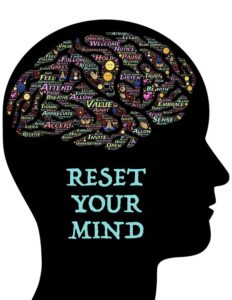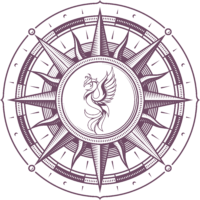 Ease your dis-ease by identifying your stuck points
Ease your dis-ease by identifying your stuck points
March 26, 2021
As I sat down to write this month’s blog, I did everything to avoid the subject I wanted to talk about, stuck points. Stuck points are thoughts that keep us from recovering from events that remain unsolved or keep coming back into our memories. When these memories or triggers come up, our minds create an illusion of handling the situation by making stuck points statements to reflect how the story should flow. We must become mindful of our thoughts and understand that stuck points are not a feeling, behavior, or event but a thought. Stuck points are typically black/ white statements and use harsh language. Stuck points are easier to challenge when specific and do not make assumptions about the meaning of words or render multiple interpretations.
As we get older and interact with diverse groups, cultures, people, places, and things, we develop the energy of either acceptance or rejection. Quite often, this energy of approval or denial is rooted in the feeling of being safe. When the mind feels safe, it creates coherence with the movement of energy.
When events that cause poor or traumatic memories occupy space in our bodies, dis-ease shows up. In my opinion, dis-ease comes from the stories we tell ourselves, especially when stress is the primary stimulant for energy movement.
Our soul has a gyroscope that seems to the right itself when emotions go array. Sometimes our daily lives push our thoughts to focus on material things, such as caring for a car or making it to work on time. Somewhere in between, our brain tries to change or assimilate memories to fit existing beliefs. In doing so, we begin to over-accommodate and develop stuck points that may create erroneous conclusions if not resolved quickly.
May I encourage you to become mindful of how you talk to yourself? To do this, learn to distinguish the difference between a feeling and a thought. For example, I am nervous when I speak in front of people. That is describing a feeling, not a review. A possible stuck point would be: If I talk in front of an audience, people will not believe me. Or I cannot trust my judgment.
Learn to distinguish the difference between a feeling, not a thought. For example, I am nervous when I talk in front of people. That is describing a feeling, not a review. A possible stuck point would be: When I speak in front of an audience, people will not believe me. Or I cannot trust my judgment.
Even if you are describing a behavior, it is not a stuck point. For example, I fight with my son all the time. That is describing a behavior. Also, telling a fact is not a stuck point. I have seen plenty of baptisms. When my little brother was getting baptized, my mother pinched my ear. I hate going to church now, especially for baptisms.
Making a moral statement is not a stuck point. The United States should have health insurance for everyone. How is that statement impact your life. One could say over 200 million people died last year due to having no health insurance. I do not believe the government cares about my welfare.
If you genuinely want to work on identifying your stuck points, here are a few tips that may help you on your journey:
- Get a journal and write down what your belief is stuck points. Make sure the stuck energy is one concise thought. Can use the “if-then” brackets.
- Focus on how you are thinking, or your thoughts can get in the way of your recovery.
- Become mindful, so you can identify these kinds of thoughts or “stuck points” attempting to keep you “stuck” in your misery. They create barriers to your recovery.
- Learn how to challenge these stuck points by identifying whether they are assimilated or over-accommodated.
- Use a Socratic dialogue and worksheets to challenge these stuck points.
- Write an impact statement about how the traumatic event has affected you (at least one page). What does it mean to you that this experience has occurred? Focus on any guilt you have regarding the trauma and the event’s effects on your beliefs about yourself, others, and the world. Consider how your thoughts about safety, trust, power/control, esteem, and intimacy may have been affected.
The goal is to identify stuck points is to allow yourself to acknowledge that some things are not suitable for the mind, body, and soul. This moment of realization may help you create more pathways to find out how to live your best self.
